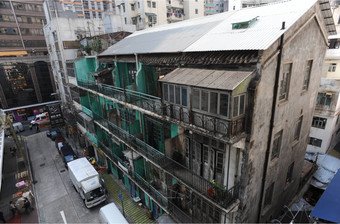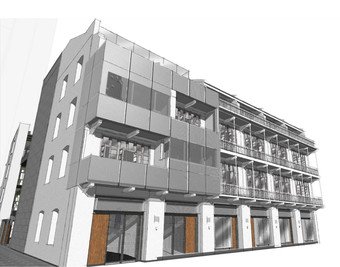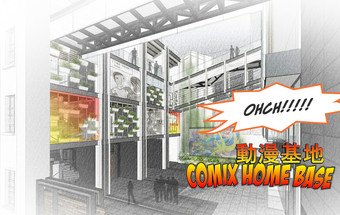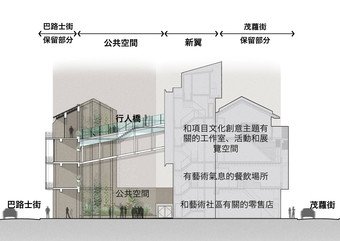



Hong Kong Arts Centre awarded the Main Operator contract for Mallory Street/Burrows Street Revitalisation Project
The Urban Renewal Authority (URA) today (Friday) announced that
the Hong Kong Arts Centre (HKAC) has been awarded the contract for
the Main Operator of Mallory Street/Burrows Street Revitalisation
Project ("Art Community") in a public tender exercise.
Announcing the tender result at a media briefing this afternoon,
the Chairman of the URA, Mr Barry Cheung, said: "In the coming
year, the URA will work closely with HKAC to design and complete a
custom-built environment at the Mallory Street project for the
cultural and creative industries based on its innovative proposal.
Upon its completion in mid-2012, this project will provide members
of the public a venue for enjoyment of a variety of cultural
activities."
Mr Cheung pointed out that the URA had made three new and
unprecedented records in this project which comprises the
revitalisation of a cluster of 10 pre-war Grade 2 historic
buildings into a hub for culture and creative industries.
First, this is the first pure preservation cum revitalisation
project of the URA since its set up in 2001. In recent years, the
URA has also launched three other preservation/revitalisation
projects, namely, the Prince Edward Road West/Yuen Ngai Street and
Shanghai Street/Argyle Street projects and the Central Oasis
revitalisation project. All three projects do not have any
redevelopment elements.
Second, this is the first project designed to promote cultural and
creative industries.
Third, the tender conditions of this project are virtually
different from those of URA's other projects. While the
operator is not obligated to pay to the URA any money for operating
the project, the URA would pay the operator on a monthly basis a
sum to cover the operating costs on management, operation,
promotion and marketing. The Authority would also shoulder
all property management expenses such as repairs and maintenance,
security, cleansing and so on. Under such an operating mode
together with an incentive arrangement, the Main Operator could
focus on planning, promotion and organisation of their programmes
and activities for the "Art Community".
Mr Cheung then briefly mentioned the development of the Mallory
Street revitalisation project, noting that the Authority has in
accordance with the approved plans preserved six buildings of
four-storey at Mallory Street and the façade of the Burrows Street
buildings as well as to provide a 300-square metre public open
space.
To meet the requirements of the prevailing Building Ordinance,
there are certain modifications made to the cluster to provide lift
installation for the disabled, fire escape staircases and other
facilities.
In search for the best operating mode for this project designed
with a theme of cultural and creative activities, the URA appointed
a consultant team led by Professor Desmond Hui in June 2009 to
study its operation mode and development plan. Findings of
the research study, which has made reference to overseas
experiences of similar projects as well, have proposed an "Art
Community" operation model.
The Main Operator of the revitalised building cluster will serve
as a facility manager, an event organiser as well as a branding
agent responsible for property management, organising events and
daily operation, in addition to teaming up with various
tenants/operators.
As for venue set-up, it comprises:
- Ground floor shops facing streets will be art-related retail stores;
- Small-scale food & beverage facilities will be located at the first floor to help form an audience base for the "Art Community";
- The second and third floor areas will be used as work spaces, and venues for events and exhibitions; and
- The 300-metre public open space will be used for holding events and activities by the resident and non-resident organisations.
Mr Cheung said the compensation and development cost of the
project is estimated at about $200 million. "The future
incomes generated from the "Art Community" might only be able to
pay back our investment cost incurred over a very long period, but
we hope it can definitely benefit the public by preserving and
revitalising the buildings to provide a hub of cultural and
creative activities for the operators and the public."
Mr Cheung said consideration was being given to the introduction
of an art and culture element in the future URA projects as well
its programmes and the URA Board would soon examine the formulation
of an art policy or practice related to urban renewal in due
course.
At the media briefing, Executive Director of Aedas Ltd, Mr Kyran
Sze, explained the design features and architectural concept for
the project while the Executive Director of the HKAC, Ms Connie
Lam, touched on its theme and direction of operating the
revitalisation project.
She said: "The HKAC is very pleased to work with the URA in this
fascinating revitalisation project. Being enthusiastic and
experienced in promoting art culture, the HKAC will endeavour to
turn the Mallory Street revitalisation project into a Comix Home
Base and setting it as a platform for art exchange and interaction
locally and overseas. We would try our best to develop it as a
significant cultural landmark for Wan Chai."
The URA has adopted an open and transparent tender process for the
project. On 16 July 2010, the URA invited interested parties to
express interest in the services via press release and newspaper
advertisements. A total of nine EOI submissions were received on 16
August 2010 and a briefing was held on 14 January 2011.
A total of six tender proposals were received on 1 March 2011 for
the Main Operator of the revitalisation project. A Technical
Review Panel comprising of URA Board members and outside expert
members, after careful consideration of all tender submissions in
respect of experience, track records and capability to establish
and manage a creative community comprising operators from various
sectors of the creative industry, has awarded the Main Operator
contract lasting for five years to the HKAC.
(ENDS)
